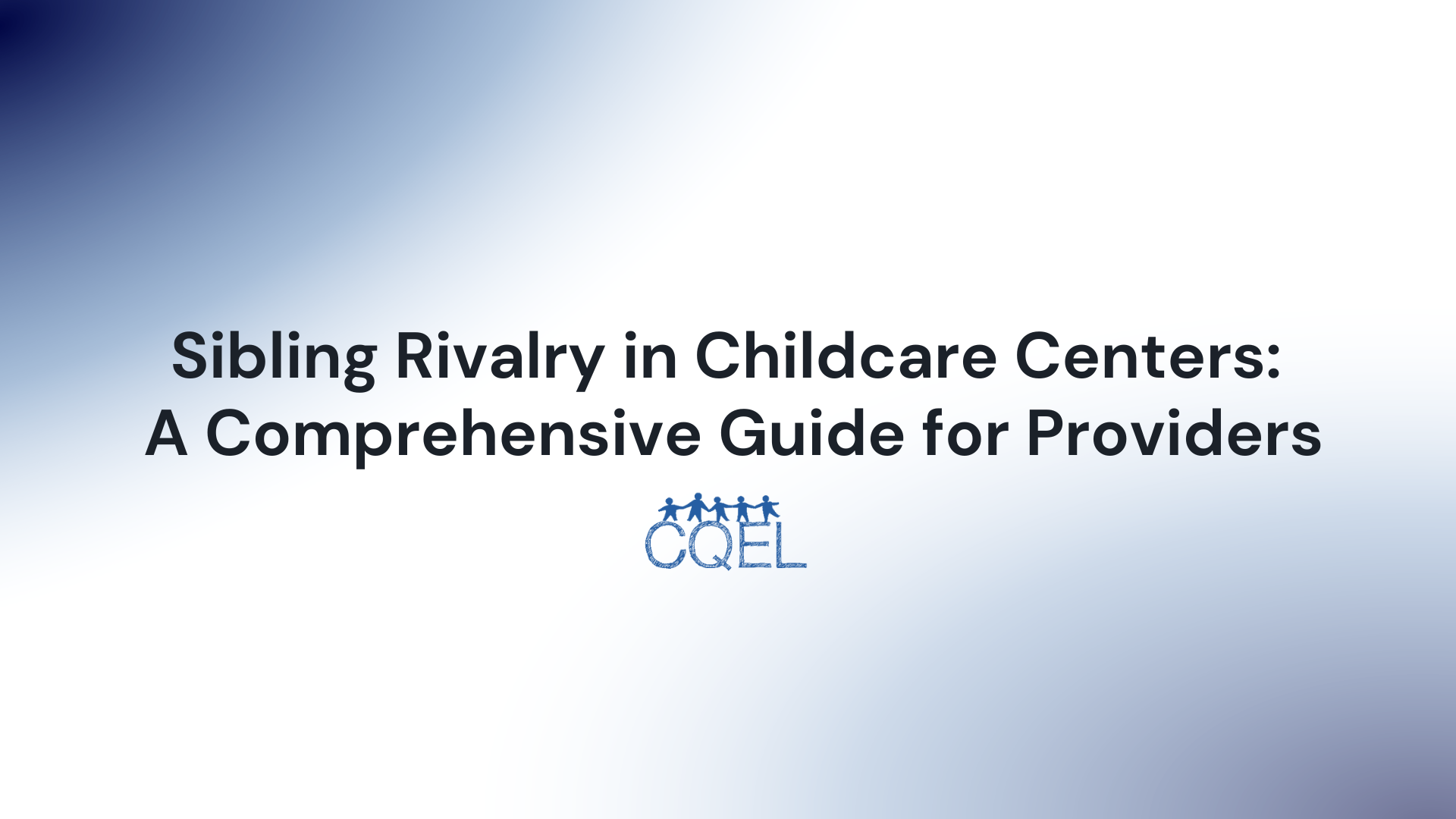Sibling Rivalry in Childcare Centers: A Comprehensive Guide for Providers
There are a number of things childcare providers can do to help children manage their sibling rivalry healthily.

Sibling rivalry is a normal part of growing up, but it can be especially challenging to handle in a childcare center setting. With multiple children from different families interacting with each other every day, there are bound to be conflicts. However, there are a number of things that childcare providers can do to help children manage their sibling rivalry in a healthy way.
Identify the triggers
The first step to handling sibling rivalry is to identify the triggers. What are the things that typically set off sibling rivalry among the children in your care? Once you know what the triggers are, you can start to develop strategies for avoiding them or for helping children to cope when they do occur.
Be consistent
It is important to be consistent in your expectations and discipline for all children in your care. This will help to create a fair and predictable environment, which can help to reduce sibling rivalry.
Teach children conflict-resolution skills
One of the best ways to help children manage sibling rivalry is to teach them conflict-resolution skills. This includes teaching them how to communicate effectively, listen to others, and compromise.
Provide opportunities for cooperation
Another way to reduce sibling rivalry is to provide children with opportunities to cooperate and work together. This can be done through group activities, games, and projects. When children work together, they learn to value each other's contributions and to see each other as teammates rather than rivals.
Intervene early
If you see sibling rivalry occurring, it is important to intervene early. This will help to prevent the conflict from escalating. When you intervene, be sure to stay calm and neutral. Avoid taking sides or blaming children. Instead, focus on helping them to resolve their conflict peacefully.
Talk to parents
If you are concerned about sibling rivalry among the children in your care, it is important to talk to the parents. Let them know what you see and the strategies you use to address it. Parents can also work with you at home to help their children manage their sibling rivalry.
Here are some additional tips for handling sibling rivalry inside childcare centers:
- Create a safe and supportive environment. Children need to feel safe and supported in order to be able to manage their sibling rivalry in a healthy way. Ensure that your childcare center is where all children feel respected and valued.
- Set clear expectations. Children need to know what is expected of them in terms of behavior. Make sure that your childcare center has clear rules and expectations in place.
- Be a good role model. Children learn by watching the adults in their lives. Model respectful and cooperative behavior for the children in your care.
- Be patient. It takes time for children to learn how to manage their sibling rivalry in a healthy way. Be patient with the children in your care and offer them support and guidance along the way.
Sibling rivalry is a normal part of growing up, but it can be challenging to handle, especially in a childcare center setting. However, there are a number of things that childcare providers can do to help children manage their sibling rivalry in a healthy way.
By identifying the triggers, being consistent, teaching children conflict resolution skills, providing opportunities for cooperation, intervening early, and talking to parents, childcare providers can create a safe and supportive environment where children can learn to manage their sibling rivalry in a healthy way. It is important to remember that it takes time for children to learn how to manage their sibling rivalry in a healthy way. Be patient with the children in your care and offer them support and guidance along the way.
